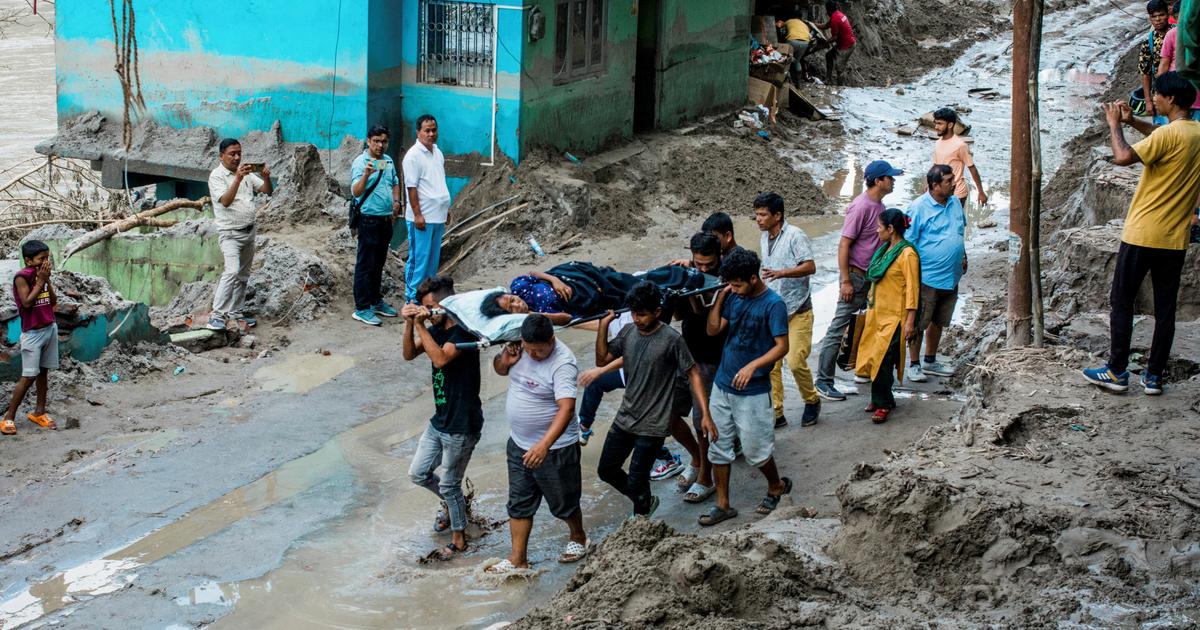At least 77 people died in the Himalayan valley in northeastern India on October 4. STRINGER / REUTERS
Flash floods that occurred on Wednesday after the overflow of a glacial lake caused major damage in the Himalayan valleys of northeastern India.
At least 77 people died in a Himalayan valley in northeastern India after flash floods caused by an overflowing glacial lake on Wednesday, according to a new report released Sunday by authorities. In Sikkim,twenty-nine bodies were recovered from different locations“, said the state civil servant, Anilraj Rai.
In neighboring West Bengal, 48 more bodies were found, Jalpaiguri district police said. More than 100 people are still missing, according to the latest reports.
Water levels along the Teesta River have returned to normal, four days after flash floods triggered by an overflowing glacial lake, an official at the Sikkim state disaster control center said. Lhonak Lake, which overflowed on Wednesday and caused extensive damage in downstream valleys, is located at the foot of a glacier near Kangchenjunga, the world’s third highest peak.
Houses are submerged in water. STRINGER / REUTERS
The water level along the Teesta River overflowed on October 4. STRINGER / REUTERS
Many people fled. More than 2,500 people have been rescued, but another 3,000 remain stranded in emergency relief camps in the north of the state. STRINGER / REUTERS
Infrastructure destroyed
Bridges, roads and telephone lines were swept away, making evacuation difficult. More than 2,500 people have been rescued, but another 3,000 remain stranded in emergency relief camps in the north of the state, after air rescue operations were delayed due to bad weather. In total, more than 1,200 homes were damaged, according to the Sikkim state government.
Refugees found shelter in classrooms. STRINGER / REUTERS
A car disappears under a landslide caused by flooding. STRINGER / REUTERS
Among the dead were eight Indian soldiers stationed in Sikkim, which lies on India’s remote borders with Nepal and China and has a significant military presence.
India’s Defense Ministry said in a statement on Saturday that the flood had washed away “firearms and explosives» stored in a military camp.
Between 2011 and 2020, Himalayan glaciers melted 65% faster than in previous decades due to climate change, according to a report published in June by the International Center for Integrated Mountain Development (ICIMOD), based in Nepal. The average temperature at the Earth’s surface has risen nearly 1.2 degrees Celsius since pre-industrial times, but high mountain regions around the world have experienced twice as much warming, climate scientists say.
” data-script=”https://static.lefigaro.fr/widget-video/short-ttl/video/index.js” >

“Twitter junkie. Hipster-friendly bacon expert. Beer ninja. Reader. Communicator. Explorer. Passionate alcohol geek.”







